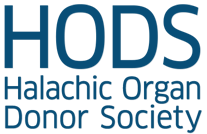This paper includes a discussion opener by ethicists Harris and Erin followed by additional articles by Savulescu and Richards on the regulated organ sales debate. Harris and Erin argue that the solution to the organ shortage crisis is an ethical market of organ sales. Their plan would allow a single governing geopolitical area (the UK or EU) to create a single-payer distribution network that would both distribute organs and ensure that no misconduct occurred. Distribution would be assigned according to an established formula of priority. Participants (both vendors and donors) would be resident citizens of the governing area preventing exploitation of citizens from poorer countries. Sellers in this system “would know they had saved a life and would be reasonably compensated for their risk, time, and altruism, which would be undiminished by sale.”Savulescu argues that people should have the right to decide for themselves whether or not to sell a body part. When this right is denied, it constrains anindividual’s autonomy. He feels this is a “double injustice” for those escaping poverty, as if society is saying, “You can’t have what most other people have and we are not going to let you do what you want to have those things.” In contrast, Richards calls for a clarification on the types of arguments against a regulated system for organ sales. She believes that the anti-organ sales camp has failed to distinguish between those who believe that organ sales are immoral and those who anticipate potential harm to be too great when the system is put into practice.
Halachic Organ donor Society, 3926 W. Touhy Ave, Suite #365, Lincolnwood, IL, 60712-1028. Phone: 646-599-3895, Email: office@hods.org
